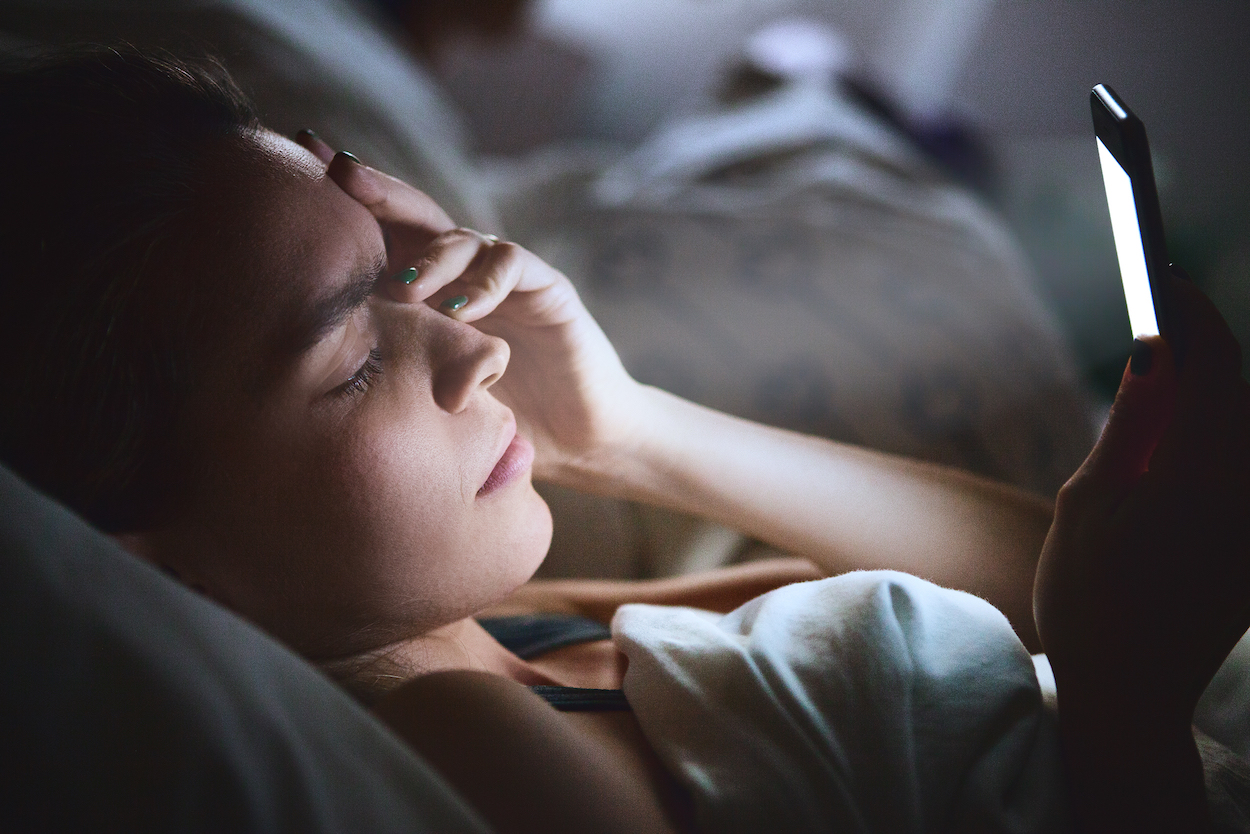Neil Tranter reflects on smartphone addiction and which part new technological designs play in digital stress. Also discover his mindfulness practice that introduces mindful awareness while using the phone. (This is a transcription of day 1 of Neil’s Insight course.)
Digital Stress & Smartphone Addiction: A Common Problem
Three years ago I began a personal project to change my relationship with technology. I wanted to be able to spend time at my laptop without coming away feeling foggy and frazzled, and I wanted to stop habitually fiddling with my phone. I also wanted to reignite my passion for working with technology.
One of the fundamental discoveries I made along the way was that the challenges I faced around using technology were not unique to me. When I started to interview friends and family, everyone I spoke to either spent more time on their phones than they would like or said that using technology was sometimes a source of stress for them.
Recent studies have revealed that over a third of us check our phones in the middle of the night. And a further third check our phones within five minutes of waking up. The same survey also revealed that about a third of us have argued with our partners about using their phones too much.
So if you feel like your smartphone is in control of your life, if spending time on your tablet or laptop is making you feel tense or leaving you with brain fog. If you feel anxious when you’re separate from your devices, or if social media leaves you feeling unworthy or unlikable, then it’s really important to know that you’re not alone.
Modern Technology Grabs Our Attention
So why do we find ourselves constantly reaching for our phones or tables? Well, it turns out it’s not entirely our fault, because we live in a world that has evolved to capture our attention.
In 2013, Tristan Harris, an ex-Google design ethicist, formed the Center for Humane Technology. His stated goal is to realign technology with humanity’s best interests.
Harris argues that large tech companies such as Facebook, Twitter, Instagram, and Google are caught in a race for our retention — which they need to make money.
Constantly forced to outperform their competitors, they must use increasingly persuasive techniques to keep us glued — using alerts, notifications, emails, AI-driven news feeds. These systems are continually learning how to hook us more deeply from our behavior.
Harris even goes as far as saying that these systems are designed to addict us, targeting parts of our brains involved in motivated behaviors.
So it’s hardly surprising that we find ourselves spending more and more time on our phones, online, or social media when the software is developed to intentionally grab hold of our attention.
Our Automatic Pilot Doesn’t Help
From the neuroscience of mindfulness, we also know that as human beings the default mode for our brains is for our attention to wander unattended, and for us to carry out tasks by habits like we’re running on a kind of automatic pilot.
If we live in a world that’s designed to grab hold of our attention, and we’re not choosing where to place our attention or what we’re doing, then this may well explain why an average American checks their phones over 80 times a day.
So how can we respond to this modern day challenge?
Well, just as technology is increasingly being developed to attract and hold our attention, with mindfulness we can develop the capability to be much more aware of where the spotlight of our attention is being drawn to, and consciously choose to direct and place our attention and energy on an activity of our choosing.
We can also develop and kindly background awareness to help us become more and more aware of our unconscious habits and behaviors when we’re using our phones, tablets, and laptops.
Read more: How practicing mindfulness also helps breaking bad habits.
Guided Mindfulness Practice To Discover The Forces Of Using Our Smartphone
The best way to learn mindfulness is through direct experience. So let’s jump in with a short exercise using our phones.
We can start to explore the attention-grabbing forces that are at play. (You can also follow through this exercise on a tablet or a laptop if you prefer, and just adjust the guidance accordingly to suit you.)
- Guided Mindfulness Meditation Using The Smartphone Neil Tranter 8:27
Overcome digital stress and possibly smartphone addiction and learn how to take the power back in your relationship with technology. Neil Tranter’s 10-day course on Insight Timer “Overcome Digital Stress & Smartphone Addiction” teaches practical approaches to working with technology cravings and smartphone separation anxiety. Discover all free guided meditations by Neil Tranter.







